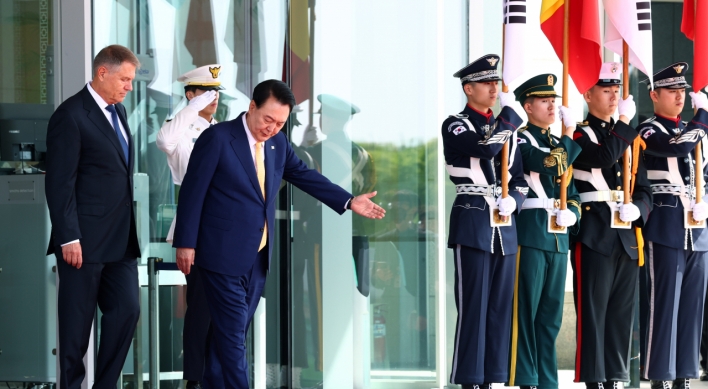 Some right-wing intellectuals believe that immigration harms US society by admitting people from cultures they consider inferior. The argument has a very old pedigree -- writing in 1896, Massachusetts Institute of Technology President Francis Walker warned against taking in “beaten men from beaten races.”
Some right-wing intellectuals believe that immigration harms US society by admitting people from cultures they consider inferior. The argument has a very old pedigree -- writing in 1896, Massachusetts Institute of Technology President Francis Walker warned against taking in “beaten men from beaten races.”This notion was always terribly wrong, and global economic development is offering added proof.
In a recent interview, law professor Amy Wax reasserted a version of Walker’s hoary argument. Wax argued that the US should take fewer immigrants from countries that she deemed to have less respect for empiricism, science and technology. She cited Malaysia as an example:
There is essentially no science being done in a place like Malaysia … no technology … I consider that very closely related to the lack of commitment to empiricism, the lack of a cultural practice of attention to evidence, rigor, analysis, facts.
Actually it is Wax who has failed to pay attention to the facts. It appears that the University of Pennsylvania professor knows very little about Malaysia.
First of all, Malaysia is no longer a poor backwater. In 2018 the country had a per capita gross domestic product of $30,860 at purchasing power parity -- comparable to that of Portugal or Poland, and about two thirds the level of the UK or France. And it’s still catching up. Over the last three decades, its growth has consistently eclipsed that of developed countries in the West.
A quick internet search would show Wax that while Malaysia certainly has poverty, its cities are hardly third-world slums. Rather, they are glittering modern metropolises full of fancy shopping malls and attractive housing developments. Malaysia’s car ownership rate is similar to Denmark’s. About 450,000 Malaysian tourists are expected to visit Australia this year.
Malaysia’s commitment to science and technology has helped drive its growth. The country spends 1.3 percent of its GDP on research and development -- not as much as the US, but substantially more than Portugal or Poland. International Monetary Fund Managing Director Christine Lagarde recently referred to the country as a “hub of innovation.”
Along with a manufacturing-focused industrial policy, the pursuit of technology has helped Malaysia become one of the world’s leading electronics manufacturers. Malaysia is the sixth-largest exporter of electronic circuit components, the ninth-largest exporter of computer devices, and one of the world’s top manufacturers of solar photovoltaic cells, despite having less than a tenth the population of the US. The epicenter of the Malaysian tech industry is the Bayan Lepas Free Industrial Zone, an electronics manufacturing cluster on the island of Penang that is sometimes likened to Silicon Valley.
Chances are high that Wax, typing on her computer or reading on her phone, is using Malaysian technology without even knowing it.
Malaysian scientists, meanwhile, have been doing important and valuable work all over the world. From a new malaria vaccine to the Lytro light-field camera to technologies that extract natural gas from the deep sea floor, the inventions of Malaysians play a crucial role in the functioning of modern society.
This is not to say that Malaysia has completed the journey to developed-country status, or that it is a world-class scientific powerhouse. It’s close, but it’s not quite there yet. Much of its research spending is still channeled through a series of research parks whose efficacy is questionable. Groundbreaking inventions and discoveries by Malaysian researchers tend to be made at universities overseas. The government’s effort to build a national auto industry failed.
In order to advance into the top rank of nations, Malaysia will have to upgrade its higher education system, build more global brands, spend its research dollars more effectively, and learn to take ambitious policy steps without its long-serving but aging Prime Minister Mahathir Mohamad. Additionally, the country needs to improve its environmental record, especially by curbing deforestation, plastic waste and air pollution.
But Malaysia’s climb up from third-world status demonstrates a more general principle -- national poverty doesn’t last forever. Since around 1990, the developing world has started gaining on the developed world at an accelerating rate; the days when American academics could lazily assume that all important technology is made in the West are long gone. Even the poorest countries in Africa and South Asia are now starting to get in on the game. As a result, the distribution of global income no longer looks bifurcated between former colonizers and former colonies, as it did in the 1970s. The societies that Francis Walker labeled “beaten” didn’t stay beat.
And this has larger implications for how the US should approach the world. There are many hard-working, talented people -- not just laborers, but scientists and engineers and thinkers -- who would like to immigrate to the US. There is no good reason not to let them in. Meanwhile, shrinking global income differences and increased industrial competition will require the US to pay greater respect to a whole host of nations it might have previously dismissed. If Malaysia can do it, plenty of other countries will, too.
Noah Smith
Noah Smith is a Bloomberg Opinion columnist. -- Ed.
(Bloomberg)


![[AtoZ into Korean mind] Humor in Korea: Navigating the line between what's funny and not](http://res.heraldm.com/phpwas/restmb_idxmake.php?idx=644&simg=/content/image/2024/04/22/20240422050642_0.jpg&u=)




![[Herald Interview] Why Toss invited hackers to penetrate its system](http://res.heraldm.com/phpwas/restmb_idxmake.php?idx=644&simg=/content/image/2024/04/22/20240422050569_0.jpg&u=20240422150649)

![[Graphic News] 77% of young Koreans still financially dependent](http://res.heraldm.com/phpwas/restmb_idxmake.php?idx=644&simg=/content/image/2024/04/22/20240422050762_0.gif&u=)




![[Exclusive] Korean military set to ban iPhones over 'security' concerns](http://res.heraldm.com/phpwas/restmb_idxmake.php?idx=652&simg=/content/image/2024/04/23/20240423050599_0.jpg&u=)



